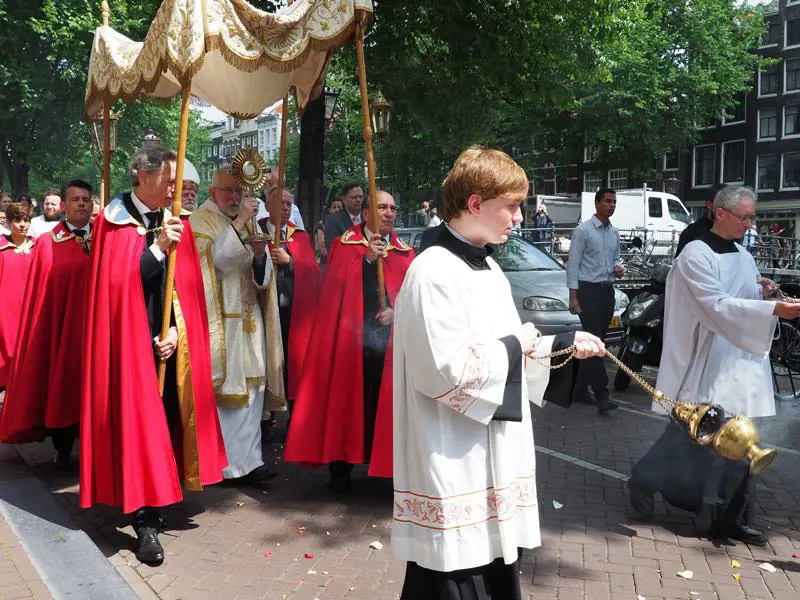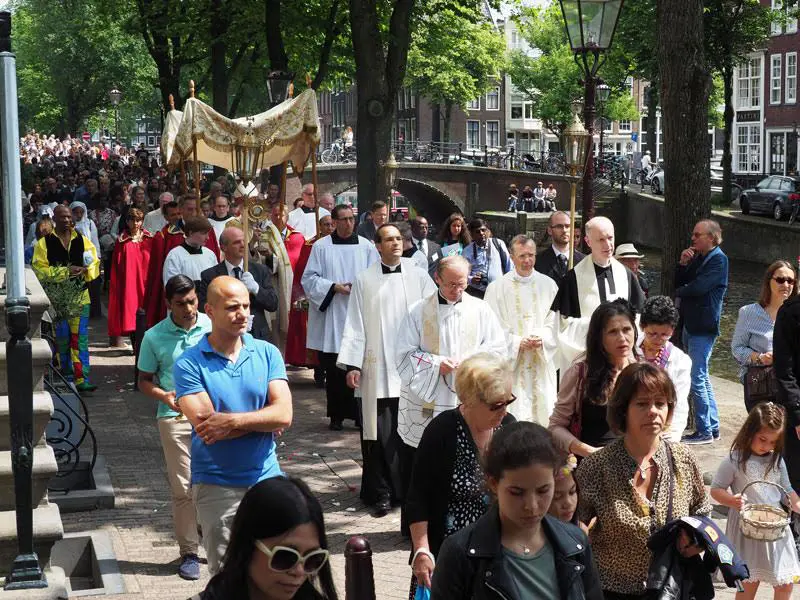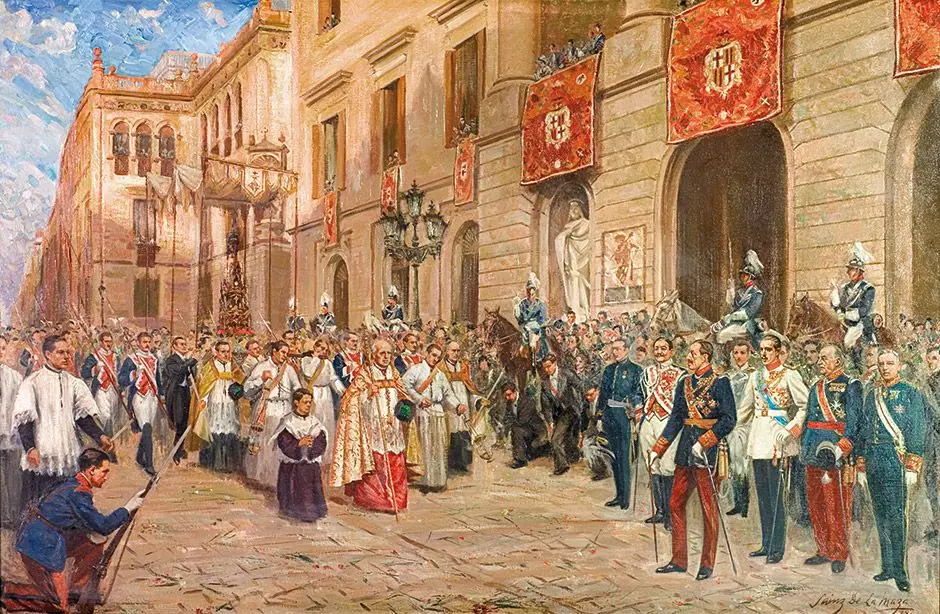
Once a year, the Catholic Church stops its ordinary liturgical calendar to put the spotlight on something extraordinary: the Real Presence of Jesus Christ in the Eucharist. That is Corpus Christi -the Body of Christ-, a solemnity that is not only contemplated, but transforms the life of those who unite themselves to Him and adore Him.
We are invited to manifest our faith and devotion to this sacrament, which is a sacrament of piety, a sign of unity, a bond of charity, a paschal banquet in which Christ is eaten, the soul is filled with grace and we are given a pledge of the glory to come.

The Corpus Christi commemorates the deepest and most central mystery of the Catholic faith: that Jesus is truly present -with his Body, Blood, Soul and Divinity- in the Holy Eucharist. It is not a symbol, it is not a metaphor, it is not a pious memory. It is Himselfalive and delivered out of love.
This feast was instituted in the XIII century, thanks to the impulse of St. Julienne of Cornillon and the Eucharistic miracle of Bolsenawhich moved Pope Urban IV. And since then, every second Thursday after PentecostCatholics around the world give public witness to their faith with solemn Masses, processions and adorations.
Because in the Eucharist God gives himself completely to us. There is nothing more intimate, more transforming and more real than communion with Christ. Corpus Christi reminds us that:
Corpus Christi is not just a beautiful date on the calendar. It is a call to live eucharistically. To let Jesus, who breaks for us, teach us to break for others. To be bread broken for the world, especially for those who do not know Christ or who suffer in silence.
Celebrating the feast of Corpus Christi is worship Jesus with all your heartWe thank him for staying with us in every tabernacle of the world, and for allowing ourselves to be transformed by his presence. Because whoever receives communion with faith, no longer lives for himself, but for the One who gives himself daily at the altar. "He who eats my flesh and drinks my blood has eternal life (Jn 6:51-58).. I am the living bread which came down from heaven. If anyone eats this bread he will live forever; and the bread that I will give is my flesh for the life of the world.
The Jews began to argue among themselves: -How can this man give us his flesh to eat?
Jesus said to them, "Truly, truly, I say to you, unless you eat the flesh of the Son of Man and drink his blood, you have no life in you. He who eats my flesh and drinks my blood has eternal life, and I will raise him up on the last day. For my flesh is true food and my blood is true drink.
He who eats my flesh and drinks my blood abides in me and I in him. As the Father who sent me lives and I live because of the Father, so he who eats me will live because of me. This is the bread that came down from heaven, not as the fathers ate and died: whoever eats this bread will live forever.
On the feast of Corpus Christi we celebrate Christ's revelation of the mystery of the Eucharist. His words are of such strong realism that they exclude any interpretation in a figurative sense. The listeners understand the proper and direct meaning of Jesus' words (v. 52), but they do not believe that such a statement can be true.
If it had been understood in a figurative or symbolic sense, it would not have caused them such great surprise, nor would the discussion have taken place. From this is also born the faith of the Church that through the conversion of the bread and wine into his Body and Blood, Christ is made present in this sacrament..

"The Council of Trent summarizes the Catholic faith when it states: "Because Christ, our Redeemer, said that what he offered in the form of bread was truly his Body, this conviction has always been maintained in the Church, which the Holy Council declares anew: 'by the consecration of the bread and wine there is effected the change of the whole substance of the bread into the substance of the Body of Christ our Lord and of the whole substance of the wine into the substance of his blood; the Catholic Church has justly and appropriately called this change transubstantiation' (DS 1642)."
In this discourse Jesus compares three times (cf. vv. 31-32.49.58) the true Bread of Life, his own Body, with the manna, with which God had fed the Hebrews daily for forty years in the desert. Thus, invites us to nourish our souls frequently with the food of his Body.
"From the comparison of the Bread of Angels with bread and with manna the disciples could easily deduce that, just as the body is nourished with bread daily, and the Hebrews were daily refreshed with manna in the desert, in the same way the Christian soul could daily eat and feast with the Bread of Heaven. Moreover, almost all the Holy Fathers of the Church teach that the daily bread, which is commanded to be asked for in Sunday prayer, is not so much to be understood of the material bread, food for the body, as of the daily reception of the Eucharistic Bread" St. Pius X, Sacra Tridentina Synodus, December 20, 1905.
On the Sunday after Holy Trinity Sunday, thehe Church celebrates Corpus Christi, the Solemnity of the Most Holy Body and Blood of Christ.. That is its full title, although we usually refer to it using its former Latin name, Corpus Christi. It is interesting to know that its earliest title was Festum Eucharistiae.
Author: don Francisco Varo PinedaDirector of Research at the University of Navarra and Professor of Sacred Scripture in the School of Theology.